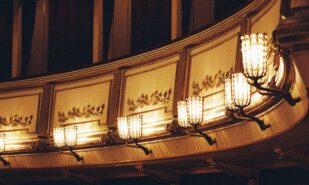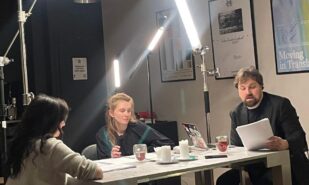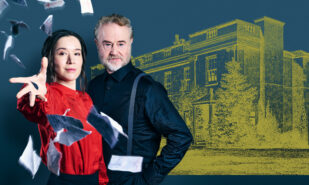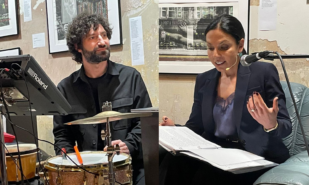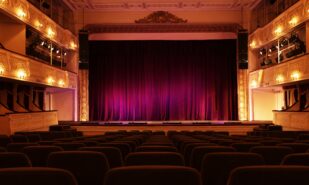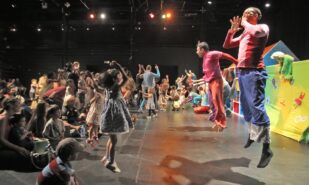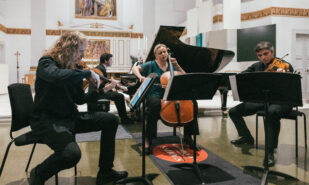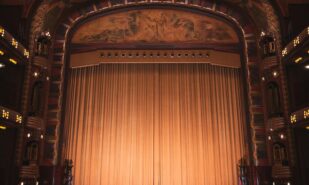Theatre in August: Musicals and Comedies at Your Service
Languid August—hot and gentle—can be spent in London and in a theatre hall. The flow of premieres has slightly subsided but hasn’t stopped (you’ll find several bright events in this review). You can also simply entertain yourself, relax, and sometimes just laugh thoughtlessly (yes, yes, not a very intellectual activity, but can we at least do it in summer?) How to spend seven evenings of sweet August? Choose wisely!
Mousetrap
St. Martin’s Theatre
West Street, London
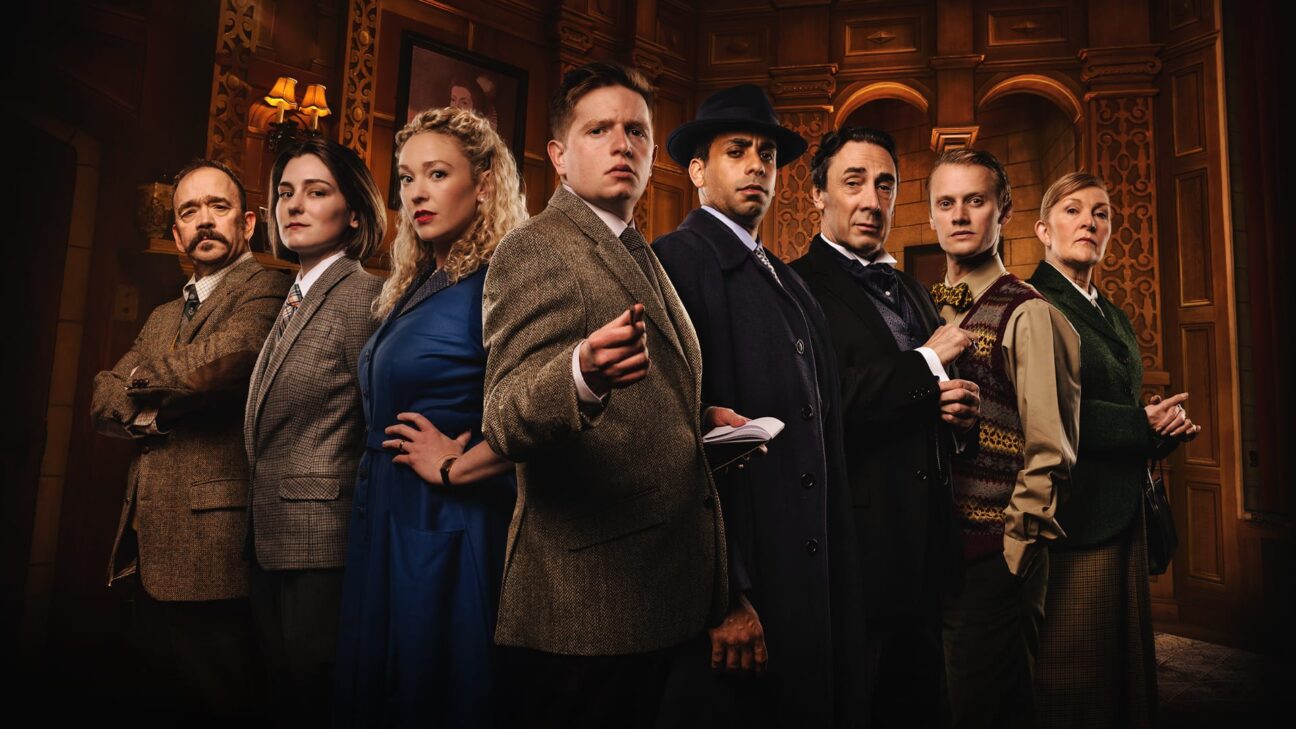
This is more of a museum than a theatre. The text of the play, the costumes, the scenery—all seem to have been transported straight from the 50s in a time machine. An amazing and, I must say, thrilling experience. It even feels strange to go here in casual clothes: you feel like putting on a dress from a bygone era. There’s a lot of dialogue, a lot of thinking, and it forces you to look for a solution. The phenomenon of this “long-running” play is undoubtedly in the genius of Agatha Christie, in her ability to twist the plot and keep the audience in suspense for two hours with an intermission. How does it end? Nobody knows! That is, everyone who has seen the play along with its unexpected denouement knows—but the audience is sworn to secrecy not to tell those who haven’t seen it. And we won’t tell—how else could “The Mousetrap” have withstood nearly 30,000 performances since 1952?
Kiss me, Kate!
Barbican Centre
Silk Street, London

Irish actor Adrian Dunbar and American singer and actress Stephanie Block play love-hate in Cole Porter’s luxurious old musical “Kiss me Kate!”
This is theatre within a theatre, where Shakespeare’s “The Taming of the Shrew” is the play that Fred and Lilli, ex-husband and wife, are rehearsing. They are forced to play Fred and Katherine, torn by the same feelings.
It’s a grand old-school musical, almost a perfect example for the Bureau of Standards.
Crazy dances, luxurious costumes and sets, a dizzying plot (so what if it’s 70 years old? I assure you, it still works!), and of course, a happy ending—in “Kiss me, Kate!” everything is in place.
The audience is delighted, no surprises or unpleasantness—except those required by the plot of Porter’s musical.
The Real Thing
The Old Vic
103 The Cut, London
One of Tom Stoppard’s best plays hit the stage in 1982. It’s a story about love, theatre, and honesty, about the search for truth in relationships. Like translucent slides, Stoppard flips through scenes, and the audience doesn’t immediately realise what’s true and what’s false, what’s a scene from Henry’s (James McArdle) new play and what’s a real scene of jealousy. And jealousy scenes happen constantly, everyone is in love. It seems impossible to figure it all out, but Stoppard carefully untangles the knot he himself has tied. The Old Vic actors even recorded a special video where, choking with laughter, they draw adulterous entanglements on a whiteboard with markers. But let’s not forget that this is Stoppard, and the playwright puts important and programmatic words in Henry’s mouth (of course, an autobiographical character). He reflects on the importance of language, its clarity, and beauty. He persuades himself not to chase after sharp formulations, losing meaning. And finally, he rejects cynicism as a way of thinking. The whole play, built on a love carousel, will come to clarity in the finale, as if confirming Henry’s theses.
Farm Hall
Theatre Royal Haymarket
18 Suffolk St, London
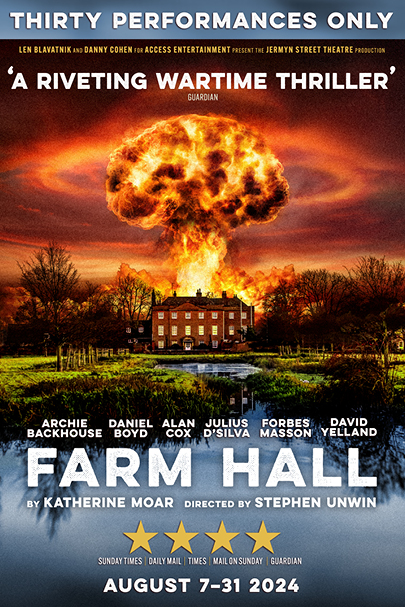
Hitler is dead, it’s 1945. Six German scientists (three of them Nobel laureates) are spending an exhilarating summer in a luxurious house near Cambridge. But they are confined there, and all their entertainment is limited to being under guard. All their conversations are recorded—and Catherine Moar’s play is indeed based on these scientists’ conversations from a real historical event. David Yelland, Alan Cox, and Daniel Boyd play all these real-life physicists.
Their existence is disrupted by the news of the successful use of the atomic bomb by the United States. Instead of horror, this news evokes… envy.
Farm Hall is a thorough and unflattering examination of the psychology of those who worked with the Hitler regime. Some justify themselves, others proudly raise their noses—and the audience is forced to watch, listen, and think, asking themselves questions.
The Fabulist
Charing Cross Theatre
The Arches, Villiers Street
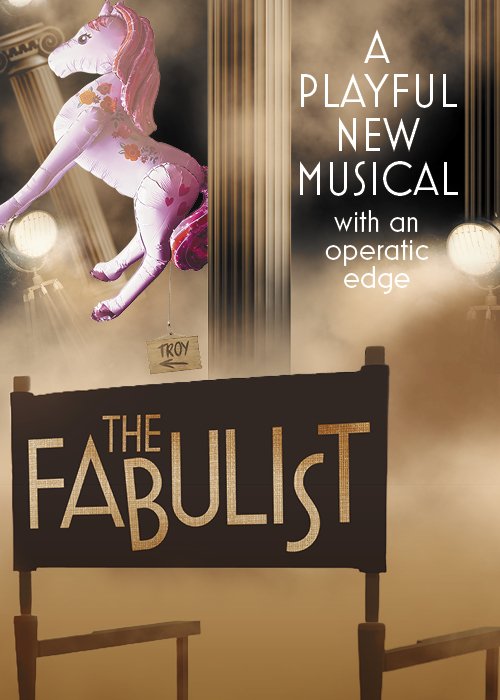
The new musical “The Fabulist” at Charing Cross Theatre tells the amazing love story of a magician and a playwright girl. 1929, Tuscany, the sun, languid life—but through all this runs the story of the magician Agrofondo, hiding from Mussolini’s persecution. And the marriage isn’t too cheerful either—everything is going downhill, but our heroes will surely manage to get through it.
Interestingly, James Farewell based the musical on the music from Antonio Paisiello’s opera “The Imaginary Astrologer”. Paisiello wrote it especially for Catherine the Great, and she absolutely loved it. Bright, playful, colourful, full of life music with a completely new libretto and story—that’s what awaits the audience in the new musical. It seems important to mention that the wonderful Off West End musical “Marie Curie” just had its final performances at Charing Cross Theatre.
The Baker’s Wife
Menier Chocolate Factory
53 Southwark Street, London
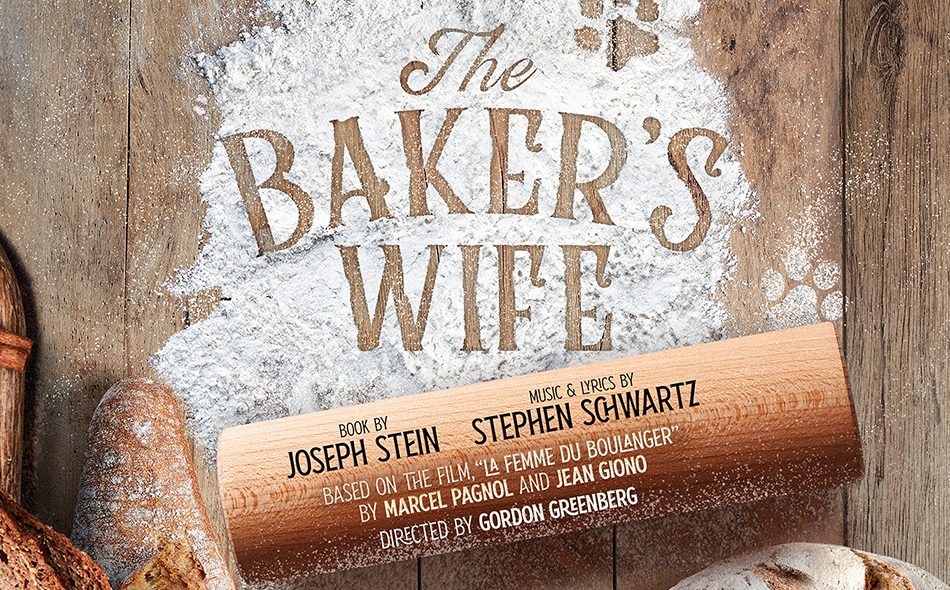
This is the second major appearance of “The Baker’s Wife” on the London stage—in 1989 the musical was nominated for an Olivier. The musical is based on the old film “The Woman in the Bakery”. The film is French, and the theme is exclusively French: the villagers panic because there hasn’t been fresh baked bread in the village for two months! No baguettes! No croissants either! But the villagers sigh with relief: the new baker and his young wife are already kneading the dough. And everything would be fine, except the village’s heartthrob steals the baker’s wife, and he, in despair, stops supplying the village with fresh bread. Again! So the villagers decide to return the wife to her rightful place. A production drama, but French and romantic. By the way, be careful: there are so many appetizing buns on stage that the desire to eat a croissant becomes almost irresistible.
The Play That Goes Wrong
Duchess Theatre
3-5 Catherine Street, London
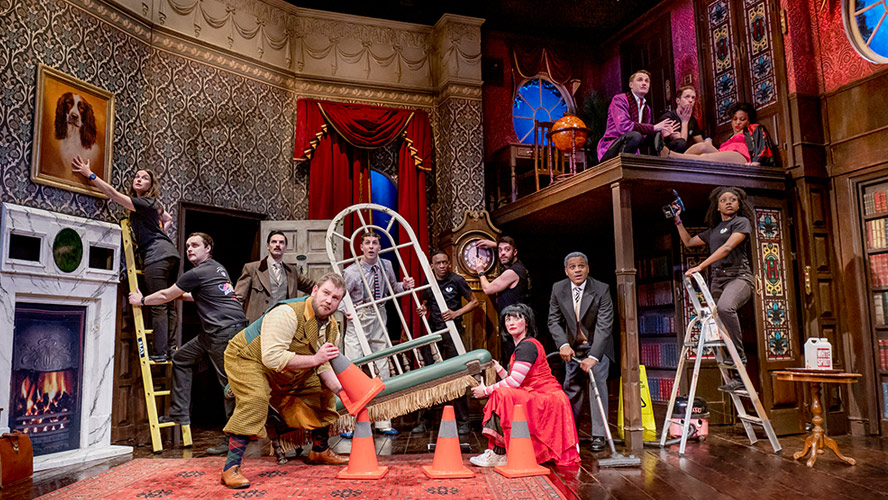
Warning: this is just a comedy. No underlying ideas or serious meanings. A summer vacation comedy. Hilariously funny, ridiculous, bright buffoonery, pure vaudeville, farce, and theatrical slapstick. Yes, it’s a franchise. Yes, it’s purely commercial entertainment. That’s the genre—and who said it’s bad? It seems I’m justifying myself to the reader for one of the highest-grossing shows in the West End, stop!
So, the plot is simple—we find ourselves in the midst of rehearsals for the detective play “Murder at Haversham Manor”. A clumsy actor trying painfully to play his character’s death and having to step back with his hands folded across his chest. Torn stretchers on which they try to carry him away, a couple of cardboard walls falling on the proud investigators… White spirit instead of whiskey, falling mantel shelves, jammed doors, a small fire, collapsing scenery—everything indeed goes wrong, but in the most luxurious 1920s style decorations. And this failure turns into a triumph, a real comedy, for which the audience pays with incessant laughter in the hall.

